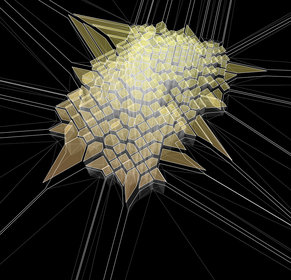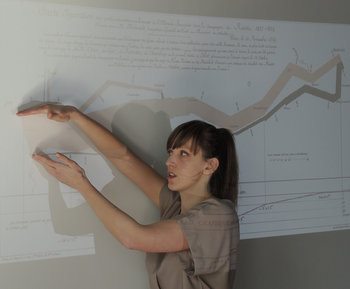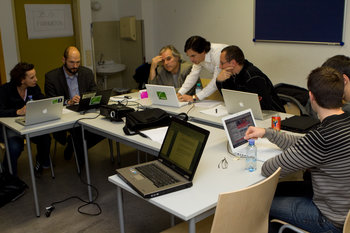
Complex Causes
Events typically have many causes. If you get unusually good grades in university you might credit your mother and father for encouraging you to read. However, there are likely thousands of factors small and large that contributed to your success.Root Cause
Root cause is the most fundamental cause of a problem. This is notoriously difficult to determine such that two teams investigating the root cause of the same problem often come up with completely different answers. If a flight attendant is unusually rude to a customer causing poor publicity, one investigator may blame training while another may suggest the employee had a history of poor behavior and never should have been hired for a difficult customer service role.5 Whys
A common way for firms to determine the root cause of a problem is to ask "why?" five times in succession to look at a problem at a deeper level. As with all root cause analysis this tends to produce different answers every time you do it. For example:A toddler threw a ball in the house and broke a television Why?The toddler broke the rules.Why?The toddler was bored.Why?Nobody was paying attention to her.Why?Mom and dad were both working on their laptops.Why?Mom and dad both have demanding jobs.This illustrates how root cause analysis is far from a certain science as you could keep asking why and end up blaming your employers, the government or the universe itself for your broken television.Arrow of Time
The arrow of time is the theory that time moves in a single direction from past to future. This means that events in the future can not cause change to the past. Time is often useful in determining cause. However, this is not always as clear cut as it seems. An egg usually precedes a chicken and therefore it may be a reasonable argument that the egg came before the chicken. However, this does raise the question of where the egg originated.Correlation Equals Causation
A common fallacy that assumes correlation equates to causation. This is commonly found in business, political, social, investment and scientific analysis. As a mistake, correlation equals causation is increasing common as data dredging software can automatically find correlations in data. For example, for many years the divorce rate in Maine was correlated with US margarine consumption.Reverse Causation
A type of fallacy that reverses cause and effect. For example, it rains every time I'm in a bad mood, therefore my moods influence the weather.Third-cause Fallacy
A fallacy that ignores a third factor that is the real cause of multiple conditions. For example:The more people swim the more they get heat strokeTherefore, swimming causes heat strokeThe analysis above misses a third factor that is the cause of both more swimming and more heat stroke: hot days.Bidirectional Causation
Bidirectional causation is when two things cause each other. For example, if you want to preserve the grasslands you might assume you need less elephants who eat the grass. However, the elephants feed the grass with manure and play a role in the ecosystem such that more elephants creates more grass and vice versa.Counterfactual Causation
Counterfactual causation is when a cause is something that did not happen. This can be quite a difficult space for analysis because the list of things that didn't happen is more or less infinite. However, human intelligence can often determine counterfactual causation. For example, I failed the test because I didn't study.Regression Fallacy
The regression fallacy is a failure to notice that something simply returned to normal on its own and wasn't influenced by your actions. For example, a gambler has lost for 100 days in a row so they buy a lucky pair of shoes and win. The gambler has confidence that the shoes are the cause of the luck while neglecting the probability that their luck would eventually return on its own. This fallacy is based on regression toward the mean whereby a period of unusual results usually corrects itself.Hypothesis Testing
Although correlation does not equal causation, science is mostly based on correlations in data. A theory of cause and effect can be validated by collecting multiple independent data sets. For example, if one study suggests smoking causes cancer it may be a coincidence. If a large number of studies confirm it, it is solid science. The fallacies related to causation are often used to refute established knowledge for political reasons.| Overview: Causality | ||
Type | ||
Definition | The relationship between cause and effect. | |
Related Concepts | ||




































